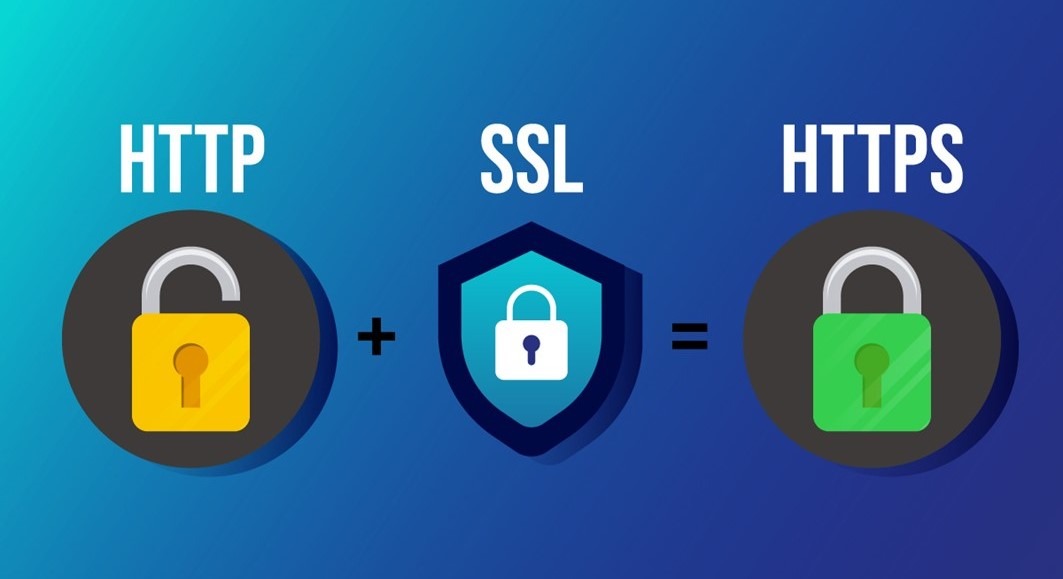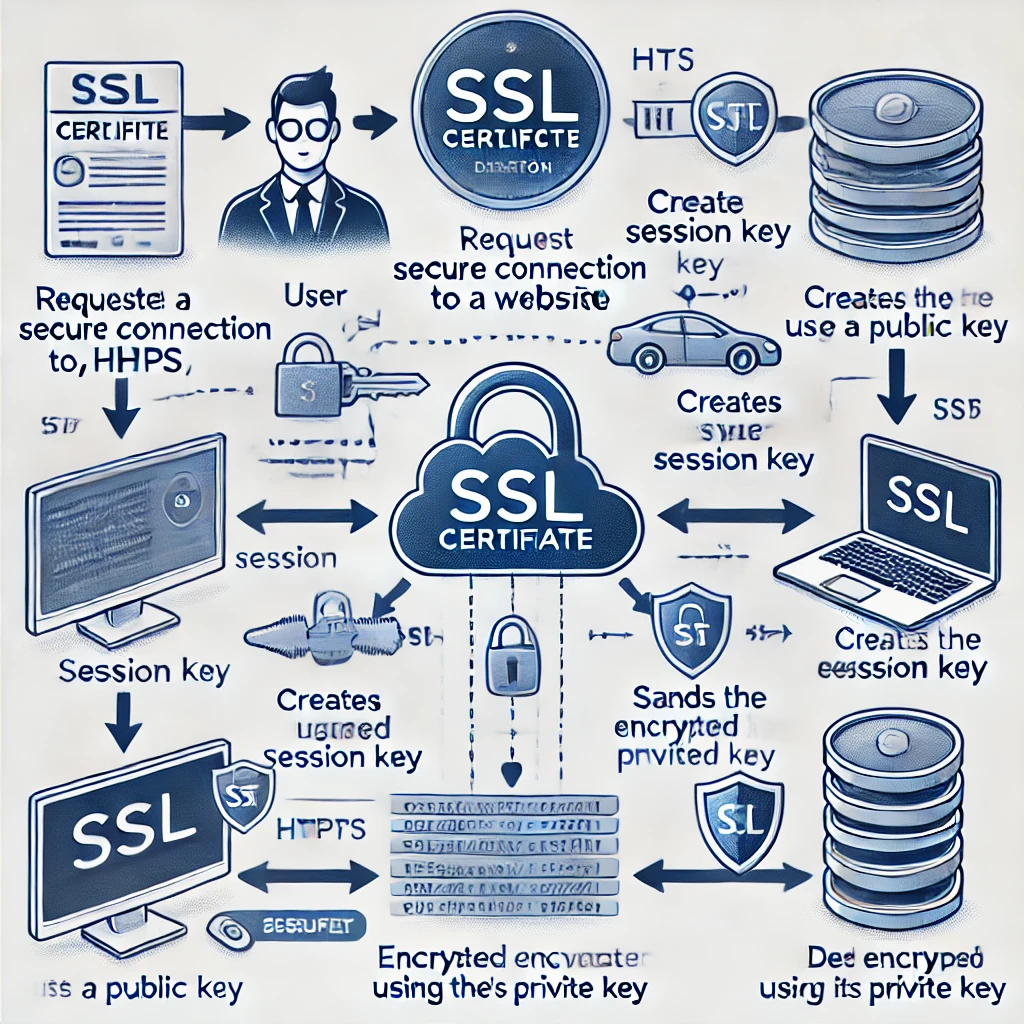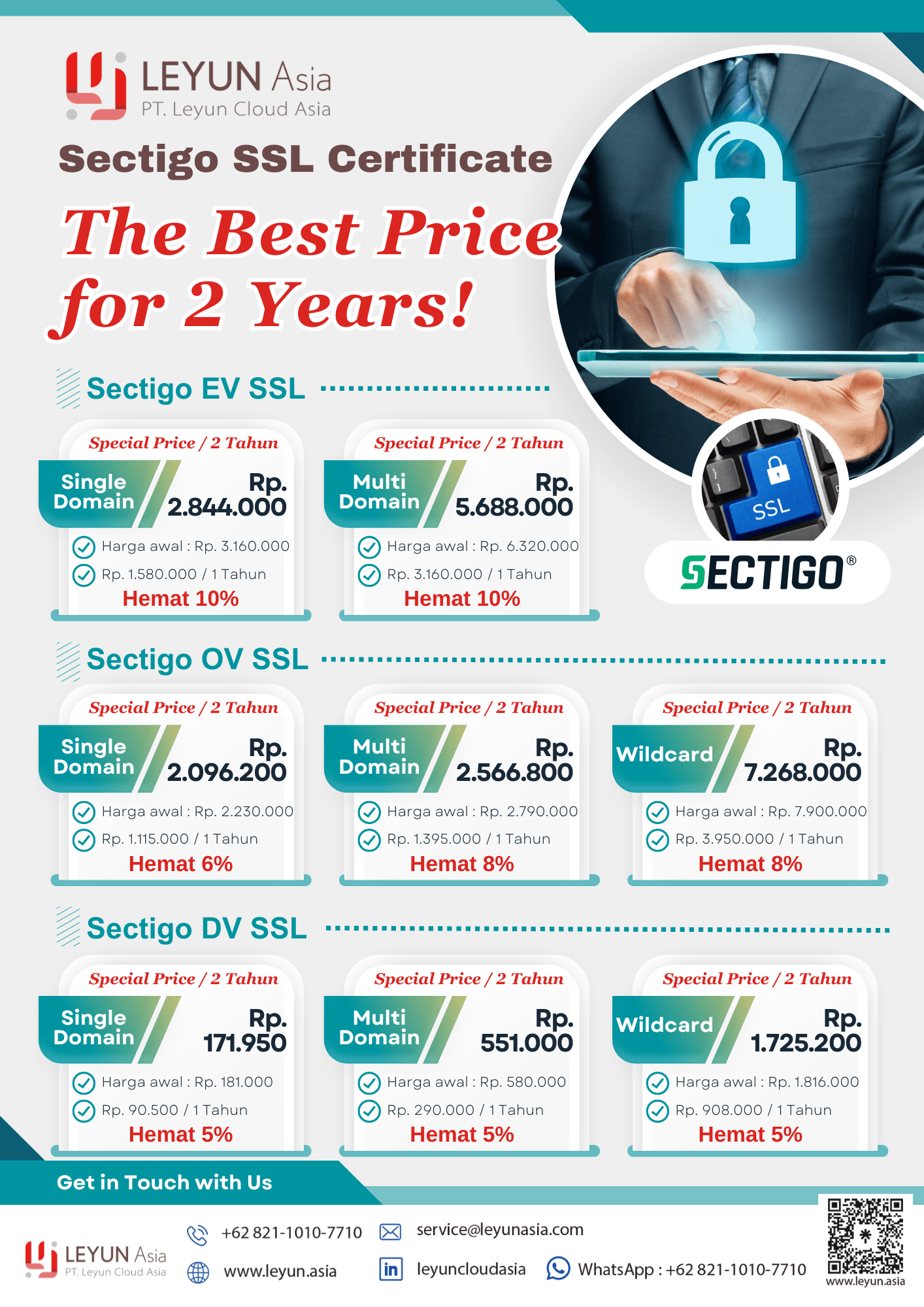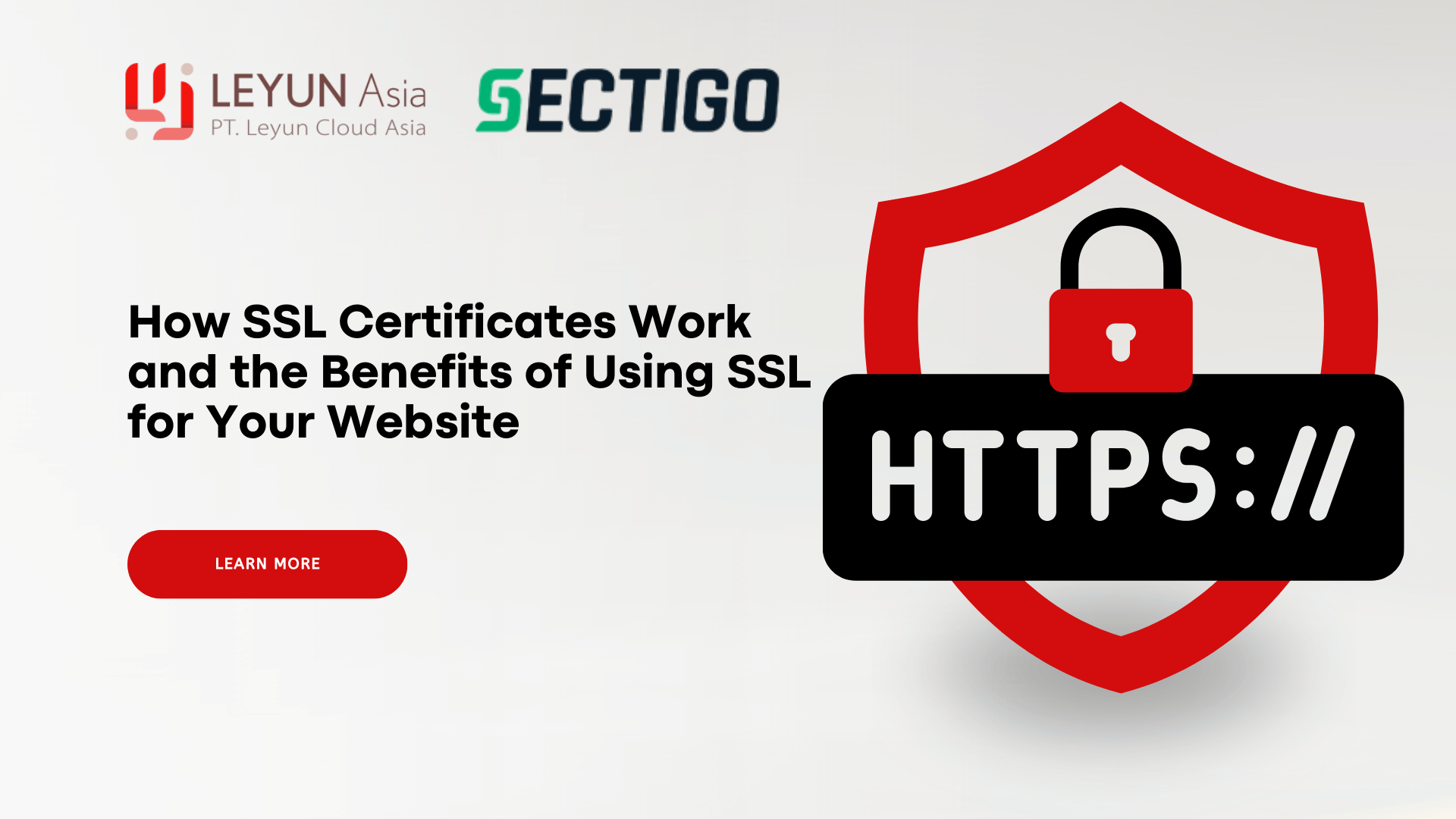SSL (Secure Sockets Layer) is a security protocol that ensures that data transmitted between servers and users on the internet remains secure. SSL uses encryption technology to secure communication, preventing unauthorized parties from intercepting or manipulating data. In this article, we will discuss how SSL works digitally.
Using cryptographic keys, SSL secures data exchange between a user’s browser and the server. These keys help encrypt the information sent, ensuring that third parties cannot access or steal it during transmission.
SSL/TLS combines private and public keys for the encryption process. In addition to these two keys, SSL uses a session key, which is uniquely generated for each secure connection session. This session key plays a crucial role in encrypting all data transmitted during that session.
When a user accesses a URL protected by SSL/TLS (usually starting with HTTPS), the browser and web server will initiate a secure connection. During the initial connection phase, the server’s public key encrypts the session key, while the server uses its private key to decrypt it. Once the session key is established, all data exchanged is encrypted and unreadable by outsiders.
How SSL Certificates Work

If SSL/TLS protects a website, the browser will display a padlock icon in the address bar, or the URL will begin with HTTPS. Users can click on this icon to view SSL certificate details, including information about the certificate issuer and its validity status.
Here are the steps involved in how an SSL certificate works:
1. SSL Connection Request
– When a user accesses a website secured with SSL (typically through HTTPS), the user’s browser first requests a secure connection to the intended web server.
2. SSL Certificate Sent
– The server the user requests sends the SSL certificate to the browser. This certificate contains:
– The server’s public key.
– Information about the organization that owns the website.
– Validation from the issuing Certificate Authority (CA).
3. Certificate Verification by the Browser
– The browser checks the validity of the SSL certificate received by verifying that a trusted certification authority issued it. The browser also ensures that the certificate has not expired and that the requested domain matches the certificate.
4. Encryption Process
– Once the certificate is validated, the browser generates a symmetric encryption session key. This key is then encrypted using the server’s public key found in the SSL certificate and sent back to the server.
5. Secure Connection Established
– The server decrypts the session key using its private key, which is only known to the server. With the same session key established between the browser and server, both parties encrypt all data transmitted.
6. Secure Communication
– Every communication between the server and the user after the session will be encrypted using a symmetric algorithm, faster than public key encryption. All data exchanges are now kept confidential, ensuring security against data interception or manipulation.
7. Closing the Connection
– After the session is complete, both parties will discard the session key used for encryption. Each new session will require a new key, ensuring that data from previous sessions cannot be reconstructed or misused.
Benefits and Uses of SSL

For website owners or visitors, SSL offers significant benefits, both in terms of security and user trust. Here are some uses of SSL:
1. Protects Sensitive Data
– SSL protects data such as passwords, credit card numbers, and other personal information by encrypting all communications between users and servers. This prevents data theft or man-in-the-middle attacks.
2. Increases User Trust
– When users see the padlock icon or the HTTPS URL, they are more confident that the site they are visiting is safe and reliable, especially when making financial transactions or sharing personal data.
3. Supports SEO Rankings
– Google and other search engines prioritize websites using HTTPS. Having SSL can help improve your website’s ranking in search results, increasing visitor traffic.
4. Complies with Online Transaction Security Standards
– For e-commerce site owners, SSL is not just an option but a necessity. Using SSL helps your site comply with security standards, such as PCI DSS, required for conducting secure online transactions.
Benefits of SSL for SEO

– Higher Rankings: Google prioritizes sites with HTTPS, increasing the potential for higher rankings.
– User Trust: Users tend to stay longer on secure sites, increasing visit duration and reducing bounce rates.
– Speed: With HTTP/2 support, HTTPS websites can be faster, which is also a ranking factor.
– Prevents “Not Secure” Label: Avoiding the “Not Secure” label in browsers helps retain users and prevents high bounce rates.
– Supports AMP: SSL allows the implementation of AMP, aiding in mobile search results.
– More Accurate Analytics Data: Retaining referral data from Google Analytics to better understand traffic sources.
Special Promo From Sectigo SSL
Get the special promo this month, consult with our team immediately by filling out the form below:

Conclusion
SSL is not just about protecting user data; it is also a vital tool for SEO that affects rankings in search engines, user trust, and engagement with your website. SSL enhances security and improves website performance in search results, helping your site gain greater visibility in an increasingly competitive digital landscape.
If you want more information about installing SSL on your website or need assistance optimizing SEO using SSL, feel free to consult with us!
By using SSL, you ensure that your website is secure, more professional, and optimized for a better user experience, both in terms of security and visibility in search engines.
If you are looking for SSL at an affordable price, we are here and are the official SSL partner in Malaysia, SSL in Singapore, SSL Taiwan and SSL Indonesia.
If you have further questions or need assistance installing SSL on your website, please ask!


